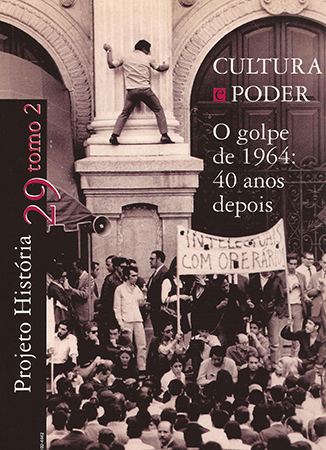O PC DO B DURANTE A DITADURA: DUAS IMPORTANTES CONTRIBUIÇÕES
Palabras clave:
PC do B, ditadura militar, guerrilha do Araguaia, movimento estudantil – Bahia, Pedro Pomar.Resumen
A sobrevivência do PC do B à violenta repressão da ditadura militar, em especial após o início da luta armada no sul do Pará, em 1972, pode ser analisada pela combinação peculiar das concepções militaristas, de inspiração foquista, largamente predominantes nas organizações revolucionárias na segunda metade da década de 1960, com orientações políticas amplas e de massas. Embora ocupassem posição claramente subordinada desde a criação do partido, em 1962, estas orientações estavam presentes nos seus principais documentos e na sua atividade política, sempre mescladas com a orientação militarista predominante. A coexistência das duas perspectivas é uma explicação para a trajetória do PC do B no movimento estudantil em Salvador, entre 1967 e 1975, em que o partido evoluiu para formas de atuação e de organização distintas das que prevaleciam nas demais organizações revolucionárias e muito próximas das propostas do PCB na época. A permanência destas concepções no PC do B pode ser atribuída à força da tradição comunista, herdada do velho PCB, e à influência de um dos seus principais dirigentes, Pedro Pomar.Métricas
Cargando métricas ...
Descargas
Cómo citar
Carvalho, C. E. (2012). O PC DO B DURANTE A DITADURA: DUAS IMPORTANTES CONTRIBUIÇÕES. Projeto História : Revista Do Programa De Estudos Pós-Graduados De História, 29(02). Recuperado a partir de https://revistas.pucsp.br/index.php/revph/article/view/9980
Número
Sección
Artigos
Licencia
Derechos de autor 2012 Projeto História : Revista do Programa de Estudos Pós-Graduados de História

Esta obra está bajo una licencia internacional Creative Commons Atribución 4.0.

Este obra está licenciado com uma Licença Creative Commons Atribuição 4.0 Internacional.




